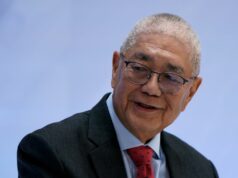Developing nations must continue to demand climate finance in defiance of the COP29 outcome

In November 2024, the annual climate conference in Baku ended with a railroaded climate finance deal that has been widely condemned as inadequate and unjust. The new deal, $300 billion per year by 2035, fell far short of the multiple trillions of public finances needed to build renewable energy capacity, phase out fossil fuels, adapt to the impacts of the climate crisis, address loss and damage, and ensure a just transition. This insulting amount was not even a commitment, merely a target, and would be an unacceptable mix of private investments, loans, and public funds. The dire inadequacy of international climate finance has left developing countries in crisis as they develop plans to deal with the impacts of the climate crisis and reduce emissions in line with the goals of the Paris Agreement.
On Feb. 10 this year, the deadline for governments’ climate plans, known as Nationally Determined Contributions (NDCs), passed with only 10 countries’ submissions. In anticipation of the missed deadline, the UN Climate Change Executive Director, Simon Stiell announced a last-minute extension until September to give other countries more time to ensure the quality of the NDC submissions, which he described as “among the most important policy documents that governments can produce this century.”
However, the major barrier that most developing countries face in implementing such plans is not a shortage of time or knowledge, but a shortage of financing. Without adequate climate finance from the Global North, debt-ridden developing countries cannot achieve the drastic emissions cuts needed to achieve the 1.5°C goal. Unnamed officials from India, one of the Global South governments that rejected the COP29 climate finance deal, have already said that their submission will reflect the inadequacy of the Baku outcome, implying that their plans will not be sufficiently ambitious. Similarly, Indonesian energy minister Bahlil Lahadalia has cited the lack of financing as a hindrance to the early retirement of coal plants.
By refusing to deliver the trillions they owe in climate finance, rich countries at COP29 have sabotaged developing countries’ climate plans and the goals of the Paris Agreement. Last year, the UN Environment Programme reported that failure to escalate ambition in the new plans would result in 2.6°C to 3.1°C of global temperature rise, an outcome that would spell disaster for vulnerable people across the world, not just in the Global South.
In addition to the abysmal outcome of COP29, the United States’ unprecedented move to rescind a $4-billion pledge to the Green Climate Fund has put further strain on developing countries’ efforts to combat the climate crisis. As the world’s biggest historical polluter predictably exits its climate obligations, it is incumbent on the rest of the Global North to step up and scale up their delivery of public, grants-based, and non-debt-creating finance. Despite the claims of the Organization for Economic Cooperation and Development (OECD) that the previous goal of $100 billion per year was met in 2022, data shows that the total of climate finance delivered by the G7 to the UN climate funds adds up to a mere $31 billion, meaning billions of pledges are yet to be fulfilled.
Developing countries and global civil society cannot let the issue of climate finance die in Baku. In defiance of the outcome of COP29, civil society groups must urge Global South governments to develop plans to intensify pressure on rich nations to cover the costs. If the world fails to meet the goals of the Paris Agreement, it will not be the failure of developing countries, who are the least responsible yet most affected by climate impacts. It will be the failure of the rich, polluting countries who are most responsible for the climate crisis, and are legally, historically, and morally obligated to pay up.
Lidy Nacpil is a climate activist and the coordinator of the Asian Peoples’ Movement on Debt and Development.



